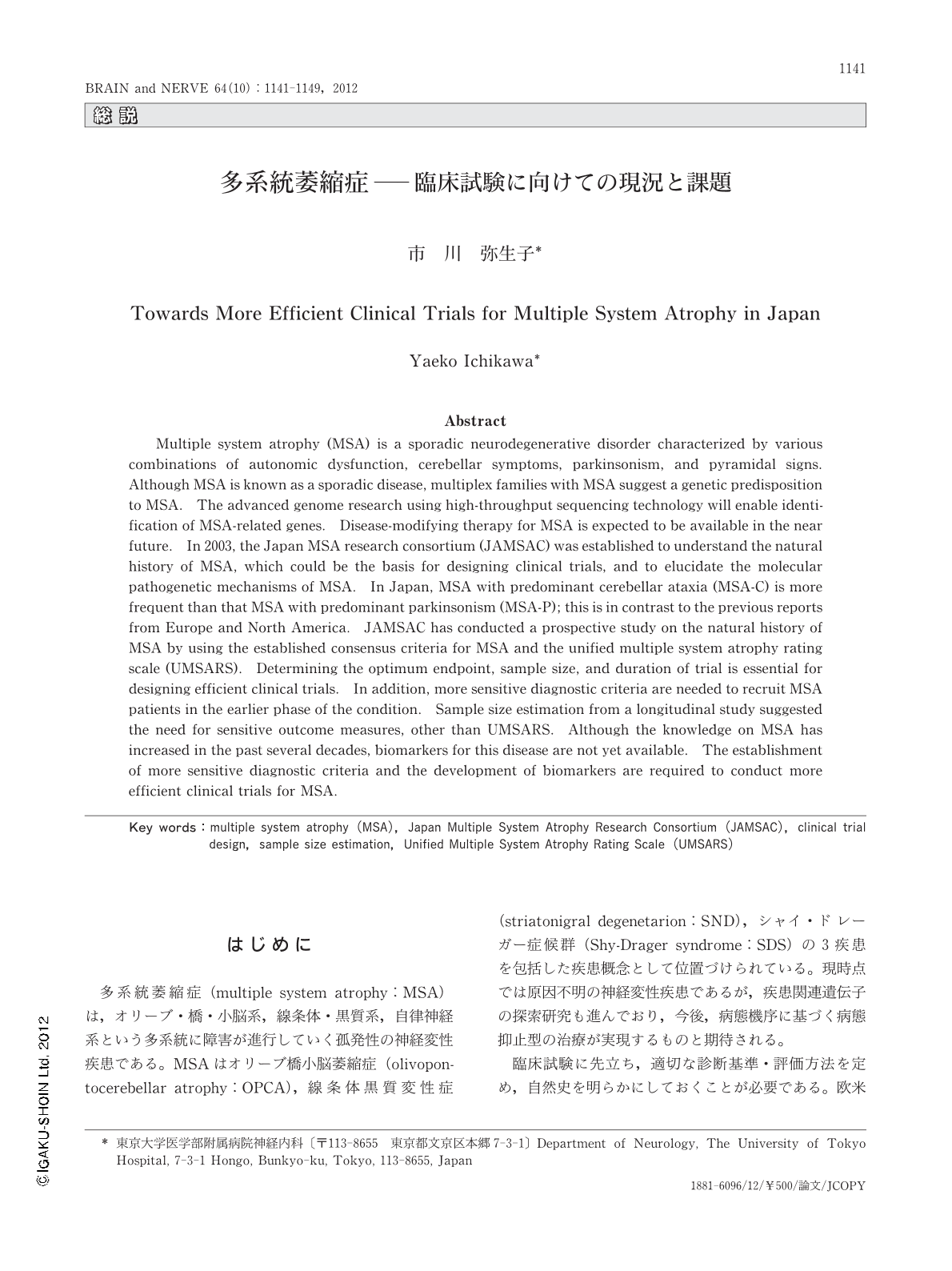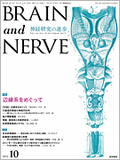Japanese
English
- 有料閲覧
- Abstract 文献概要
- 1ページ目 Look Inside
- 参考文献 Reference
はじめに
多系統萎縮症(multiple system atrophy:MSA)は,オリーブ・橋・小脳系,線条体・黒質系,自律神経系という多系統に障害が進行していく孤発性の神経変性疾患である。MSAはオリーブ橋小脳萎縮症(olivopontocerebellar atrophy:OPCA),線条体黒質変性症(striatonigral degenetarion:SND),シャイ・ドレーガー症候群(Shy-Drager syndrome:SDS)の3疾患を包括した疾患概念として位置づけられている。現時点では原因不明の神経変性疾患であるが,疾患関連遺伝子の探索研究も進んでおり,今後,病態機序に基づく病態抑止型の治療が実現するものと期待される。
臨床試験に先立ち,適切な診断基準・評価方法を定め,自然史を明らかにしておくことが必要である。欧米を中心にMSAの診断基準が策定され,疾患特異的評価スケールも策定された。現在,欧米,本邦において多施設共同研究体制が構築され,その診断基準,疾患特異的評価スケールを用いて,自然史研究が行われているが,再考すべき課題も明らかとなってきた。
本稿では疾患概念確立から診断基準の策定までの背景,多施設共同研究体制による研究(自然史研究,疾患関連遺伝子研究)の現況を概説したうえで,MSAの臨床試験において考慮すべき点と課題について考察する。
Abstract
Multiple system atrophy (MSA) is a sporadic neurodegenerative disorder characterized by various combinations of autonomic dysfunction, cerebellar symptoms, parkinsonism, and pyramidal signs. Although MSA is known as a sporadic disease, multiplex families with MSA suggest a genetic predisposition to MSA. The advanced genome research using high-throughput sequencing technology will enable identification of MSA-related genes. Disease-modifying therapy for MSA is expected to be available in the near future. In 2003, the Japan MSA research consortium (JAMSAC) was established to understand the natural history of MSA, which could be the basis for designing clinical trials, and to elucidate the molecular pathogenetic mechanisms of MSA. In Japan, MSA with predominant cerebellar ataxia (MSA-C) is more frequent than that MSA with predominant parkinsonism (MSA-P); this is in contrast to the previous reports from Europe and North America. JAMSAC has conducted a prospective study on the natural history of MSA by using the established consensus criteria for MSA and the unified multiple system atrophy rating scale (UMSARS). Determining the optimum endpoint, sample size, and duration of trial is essential for designing efficient clinical trials. In addition, more sensitive diagnostic criteria are needed to recruit MSA patients in the earlier phase of the condition. Sample size estimation from a longitudinal study suggested the need for sensitive outcome measures, other than UMSARS. Although the knowledge on MSA has increased in the past several decades, biomarkers for this disease are not yet available. The establishment of more sensitive diagnostic criteria and the development of biomarkers are required to conduct more efficient clinical trials for MSA.

Copyright © 2012, Igaku-Shoin Ltd. All rights reserved.


